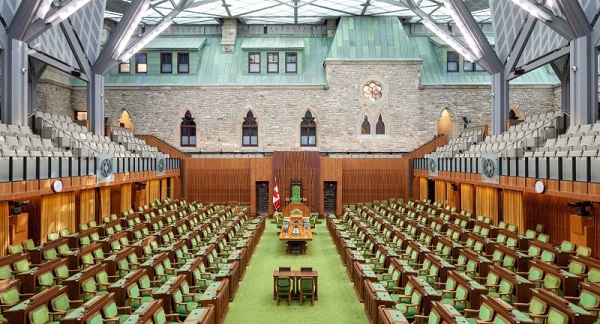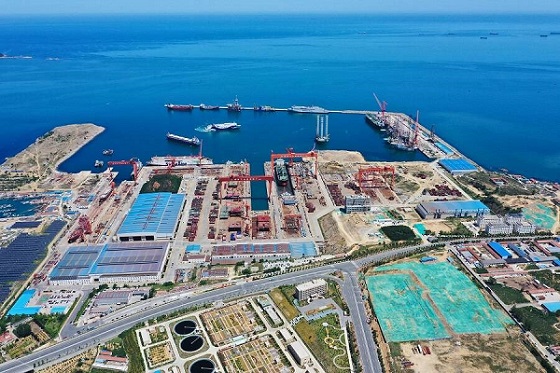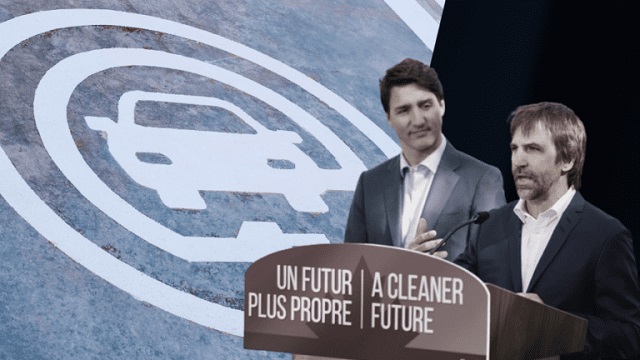Business
Canada’s Election Is Over And Now The Real Work Begins

From the Frontier Centre for Public Policy
By David Leis
Canada’s economy is stagnating. The Carney government must act fast or risk yet another lost decade
Now that the election is behind us and Mark Carney has been handed the reins of government, it’s time to focus on what matters most: fixing the policy failures that have held Canada back for the past decade.
I recently had the privilege of speaking with three thoughtful policy experts—economist and Financial Post editor William Watson, Frontier Centre’s Vice President of Research and Policy Dr. Marco Navarro-Génie, and Catherine Swift, president of the Coalition of Concerned Manufacturers and Businesses of Canada. Our wide-ranging discussion focused on the economic and institutional challenges that threaten Canada’s long-term prosperity. The insights they shared—grounded in experience, data and a deep concern for the country—made one thing clear: the new government faces an urgent to-do list.
Canadians didn’t vote for more political theatre—they voted for results. But the economic problems haven’t gone away. Weak growth, declining productivity and investor flight are all signs of a country adrift. The new government must course-correct, starting with the economy.
Canada’s growth problem is real
Canada’s economic performance over the past 10 years has been dismal. It’s no wonder many are calling it “the Lost Decade.” GDP per capita—a key measure of how much economic output is created per person—has barely budged while our international peers have surged ahead. This isn’t just an abstract economic metric. It means Canadians are falling behind in real terms—earning less, struggling more and seeing fewer opportunities for themselves and their children.
A key cause is poor policy: excessive regulation, unpredictable tax frameworks and government-heavy industrial strategies that have failed to produce meaningful results. Capital is fleeing the country, productivity is slumping and even Canadian firms are investing elsewhere. The solution is not more central planning. It’s restoring the conditions for Canadians to thrive through work, innovation and enterprise.
Energy ambition must meet energy reality
Canada has what the world wants: abundant natural resources, a highly educated workforce and some of the highest environmental standards on the planet. But unclear energy policy—and an aversion to critical infrastructure like pipelines—has stalled progress.
If the Carney government is serious about turning Canada into an “energy and clean energy superpower,” it must acknowledge the role of oil and gas alongside renewables and nuclear power. Anything less is wishful thinking. We need investment certainty, streamlined permitting and a commitment to responsible development. Environmental posturing should not come at the cost of economic reality.
We must fix internal trade before preaching to the world
Canadians may be surprised to learn it’s often harder to do business between provinces than with other countries. While we champion free trade on the global stage, Canadians remain blocked from trading freely with each other. Interprovincial trade barriers inflate costs, suppress innovation and discourage business expansion. A licensed hairdresser in Ontario can’t easily work in Nova Scotia. Quebec beer can’t be freely sold in New Brunswick. These aren’t quirks of Confederation—they’re self-inflicted economic damage.
Three provinces—Ontario, Nova Scotia and New Brunswick—have recently pledged to dismantle some of these barriers. That’s encouraging. But national leadership is needed. A country that can’t trade within itself has no business lecturing others about open markets.
Don’t alienate our most important ally
The Canada–U.S. relationship is our most vital economic partnership. We can’t diversify away from a neighbour that buys three-quarters of our exports. That requires strategy, not showmanship—and a government that understands diplomacy, defence and economic interdependence go hand in hand.
Offhand statements suggesting the relationship is “over,” as Carney put it, aren’t just melodramatic. They’re reckless. Canada must show it’s a capable partner, not a reactive one.
Rebuild confidence at home
The election wasn’t a reset—it was a warning. Canadians are anxious, investors are wary and the country is fractured. Rebuilding confidence starts with governing transparently, delivering results and confronting the policy failures too long ignored.
The campaign may be over, but Canada’s challenges are not. Now the real work must begin.
David Leis is President and CEO of the Frontier Centre for Public Policy and host of the Leaders on the Frontier podcast.
Business
Outrageous government spending: Canadians losing over 1 billion a week to interest payments

 By Franco Terrazzano
By Franco Terrazzano
Massive borrowing, soaring interest charges unacceptable
The Canadian Taxpayers Federation is calling on the federal government to cut spending following Thursday’s Parliamentary Budget Officer report showing debt interest charges cost taxpayers $54 billion in 2024-25.
“The PBO report shows debt interest charges cost taxpayers more than $1 billion every week,” said Franco Terrazzano, CTF Federal Director. “Massive deficits mean interest charges cost taxpayers more than the feds send to the provinces in health transfers.”
The PBO projects the federal government’s deficit to be $46 billion in 2024-25.
Interest charges on the federal debt cost taxpayers $54 billion in 2024, according to the PBO’s Economic and Fiscal Monitor. For comparison, the federal government spent $52 billion through the Canada Health Transfer in 2024, according to the Fall Economic Statement. That means the government spent more money on debt interest payments than it sent to the provinces in health-care transfers.
A separate PBO report projects debt interest charges will reach $70 billion by 2029.
A recent Leger poll shows Canadians want the federal government to cut spending (45 per cent) instead of increasing spending (20 per cent) or maintaining current spending levels (19 per cent).
“Borrowing tens of billions of dollars every year is unaffordable and unacceptable,” Terrazzano said. “Canadians want
Business
Ottawa Slams Eby Government Over Chinese Shipyard Deal, Citing Security and Sovereignty Risks

 Sam Cooper
Sam Cooper
Western security analysts have warned that China’s commercial shipyards routinely serve dual-use purposes, supporting both civilian contracts and the expansion of the People’s Liberation Army Navy. A 2024 report by the Center for Strategic and International Studies warned that foreign customers contracting with Chinese state-owned shipbuilders may be inadvertently “subsidizing the growth of China’s naval power.”
Stung by a political firestorm over his provincial government’s decision to hand a massive shipbuilding contract to Chinese suppliers that critics say could bolster Xi Jinping’s military capabilities and undermine Canadian national security, B.C. Premier David Eby late Friday night reluctantly released a searing letter from federal Transport Minister Chrystia Freeland.
The letter, dated June 16 and addressed to B.C. Transportation Minister Mike Farnworth, expresses Freeland’s “consternation and disappointment” over BC Ferries’ decision to select China Merchants Industry Weihai—a subsidiary of a state-owned Chinese conglomerate closely tied to Beijing’s military-civil fusion strategy and Belt and Road Initiative—to build four new major vessels.
“I am dismayed that BC Ferries would select a Chinese state-owned shipyard to build new ferries in the current geopolitical context,” Freeland wrote. She demanded that Farnworth “verify and confirm with utmost certainty that no federal funding will be diverted to support the acquisition of these new ferries.”
Freeland emphasized that the Government of Canada has provided “long-standing financial support” to British Columbia’s ferry system, including “approximately $37.8 million” annually under a 1977 agreement, $308 million to cover pandemic-related operating losses, and “a $75-million loan to BC Ferries to help purchase four net-zero emission ferries.”
“Given the value of the contract and the level of taxpayer funding that has been provided to support BC Ferries’ operations,” Freeland wrote, “I am surprised that BC Ferries does not appear to have been mandated to require an appropriate level of Canadian content in the procurement or the involvement of the Canadian marine industry.”
The letter, which had been withheld by Eby’s government for nearly a week, was quietly released to the public just before midnight Eastern Time Friday—only after repeated demands in Parliament by Conservative MP Dan Albas, who posted on social media: “People deserve that transparency.”
The political backlash mounted swiftly following Eby’s disclosure of the deal with China. BC Conservative leader John Rustad accused Eby and BC Ferries of failing to account for the broader strategic risks of contracting with a Chinese state-owned entity during a period of rising global tensions.
“There’s lots of rhetoric going back and forth between the United States and China, friction with Taiwan,” Rustad told Postmedia. “Who knows what may happen? Hopefully nothing by 2029 to 2031, which is when these ships are going to start to be constructed and delivered.”
It’s not a far-fetched concern. During the COVID-19 pandemic, Prime Minister Justin Trudeau’s government entered into a vaccine partnership with CanSino Biologics—a company with links to China’s People’s Liberation Army—only for Beijing to block shipment of the vaccine, abruptly collapsing the deal.
In her June 16 letter, Freeland warned the B.C. government that “ongoing concerns regarding threats to security, including cybersecurity, from China” required urgent attention. She asked for clear commitments that BC Ferries had conducted “a robust risk assessment” and demanded to be informed of the steps being taken to “reduce the risks of outside influence or control from cybersecurity vulnerabilities,” and to “mitigate the risks that vessel maintenance and spare parts may pose.”
Freeland further linked the deal to Beijing’s retaliatory economic measures, writing, “China has imposed unjustified tariffs on Canada, including 100% tariffs on canola oil, meal, and pea imports, and a 25% duty on Canadian aquatic products and pork. These tariffs have affected about 36% of Canadian agriculture businesses and are directly impacting the livelihood of Canadians.”
China Merchants Industry Weihai is a subsidiary of China Merchants Group, a massive state-owned enterprise that has played a central role in advancing Beijing’s Belt and Road Initiative since 2013. The conglomerate operates ports and shipyards across Asia, Europe, and Africa—including strategic holdings in Greece, Lithuania, Nigeria, and Djibouti—and is a central player in the Chinese Communist Party’s military-civil fusion strategy.
Western security analysts have warned that China’s commercial shipyards routinely serve dual-use purposes, supporting both civilian contracts and the expansion of the People’s Liberation Army Navy. A 2024 report by the Center for Strategic and International Studies warned that foreign customers contracting with Chinese state-owned shipbuilders may be inadvertently “subsidizing the growth of China’s naval power.”
Valued in the hundreds of millions, the contract will see the Chinese yard begin delivering the vessels between 2029 and 2031.
Rustad further told Postmedia that the province’s reliance on foreign state-controlled suppliers for strategic transportation infrastructure was “not just irresponsible, it’s a betrayal of Canadian workers and economic independence.”
The BC Federation of Labour has also raised concerns about the use of public money to finance offshore contracts that benefit authoritarian regimes, and Canadian maritime industry groups have renewed calls for a federal policy mandating domestic content in major shipbuilding procurements.
First established in 2016 under then-premier Christy Clark through a Memorandum of Understanding with China’s Guangdong province, the B.C.–Belt and Road Initiative pact laid the groundwork for collaboration on maritime trade, infrastructure, and shipbuilding with Chinese state-owned firms. Those ties expanded under Premier John Horgan, whose NDP government promoted deeper bilateral economic relations. The BC Ferries procurement—while legally made by an independent board—proceeded within a framework Premier Eby’s administration continues to support.
New research reported by The Bureau and published by the Washington-based Jamestown Foundation adds a sharp dimension to these concerns. The Foundation warns that criminal and political networks promoting Xi Jinping’s Belt and Road Initiative have been linked to Chinese transnational organized crime and covert Communist Party influence operations.
According to the report, a global syndicate known as Hongmen—also referred to as the Chinese Freemasons—has been deeply embedded in both criminal activity and Beijing’s “united front” operations, which support the CCP’s geopolitical aims including the annexation of Taiwan and BRI expansion.
“The organization’s sprawling structure includes affiliated offices across the globe from Hong Kong and Nairobi to Toronto and Madrid,” the report states. “The Chinese Communist Party has turned a blind eye as Hongmen ventures have expanded across One Belt One Road countries, in part because these organizations serve the purposes of united front work.”
The Jamestown Foundation’s findings echo longstanding concerns within Canada’s intelligence community regarding BRI-linked actors and opaque Chinese political networks operating in the country—especially in British Columbia, which remains the only jurisdiction in North America to have signed a formal Belt and Road agreement with Beijing.
Premier Eby has not apologized for the decision. He told reporters last week that the province would not interfere with BC Ferries’ independent board, which selected the Chinese yard based on cost and delivery timelines.
Whether mounting federal pressure and scrutiny from security experts will force a review remains an open question.
The Bureau is a reader-supported publication.
To receive new posts and support my work, consider becoming a free or paid subscriber.
Invite your friends and earn rewards
-

 espionage2 days ago
espionage2 days agoFrom Sidewinder to P.E.I.: Are Canada’s Political Elites Benefiting from Beijing’s Real Estate Reach?
-

 Business2 days ago
Business2 days agoSenator wants to torpedo Canada’s oil and gas industry
-

 Bruce Dowbiggin2 days ago
Bruce Dowbiggin2 days agoFUBAR: How Trudeau & Trump Rewrote This Century’s Political Handbook
-

 Energy2 days ago
Energy2 days agoWho put the energy illiterate in charge?
-

 Agriculture2 days ago
Agriculture2 days agoUnstung Heroes: Canada’s Honey Bees are not Disappearing – They’re Thriving
-

 espionage2 days ago
espionage2 days agoFBI Buried ‘Warning’ Intel on CCP Plot to Elect Biden Using TikTok, Fake IDs, CCP Sympathizers and PRC Students—Grassley Probes Withdrawal
-

 David Clinton2 days ago
David Clinton2 days agoWhy Are Ontario’s Public Schools So Violent?
-

 Automotive2 days ago
Automotive2 days agoOpposition Conservatives fail in attempt to “Pull the Plug” on Carney’s Electric Vehicle Mandate







